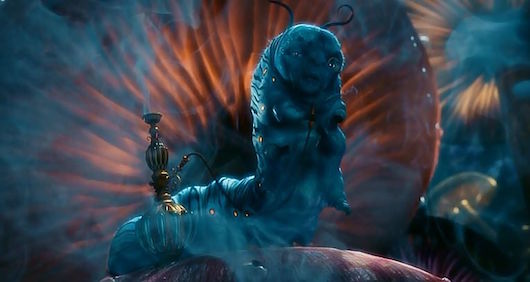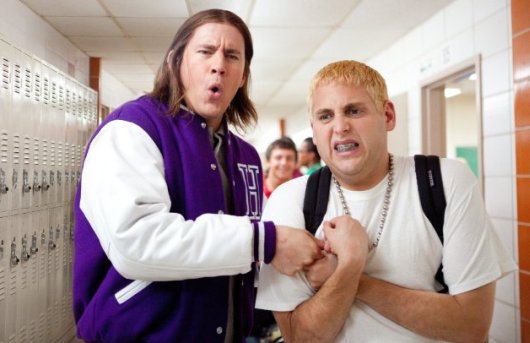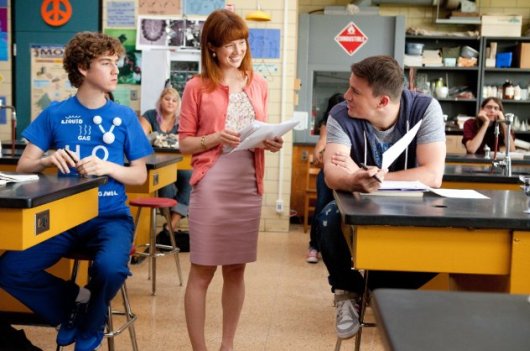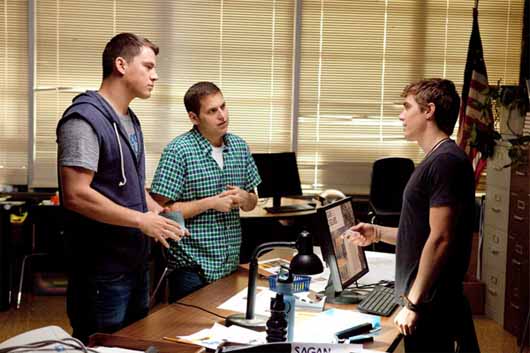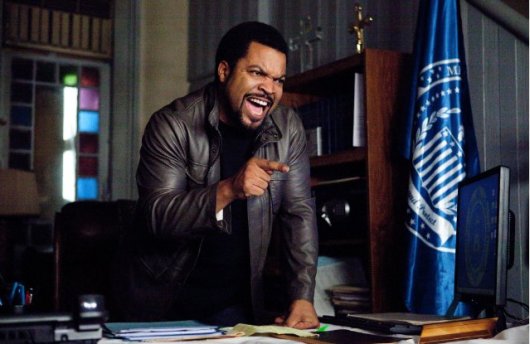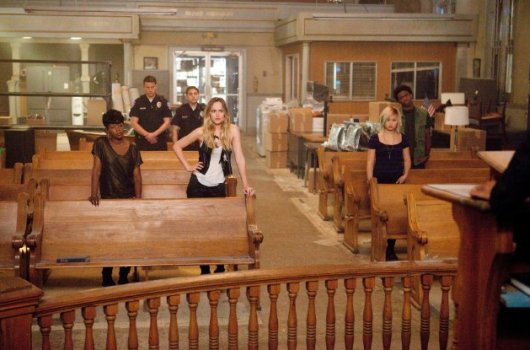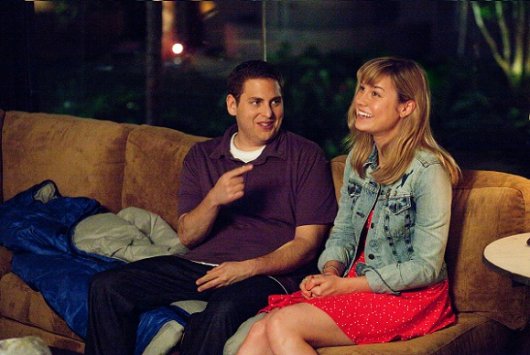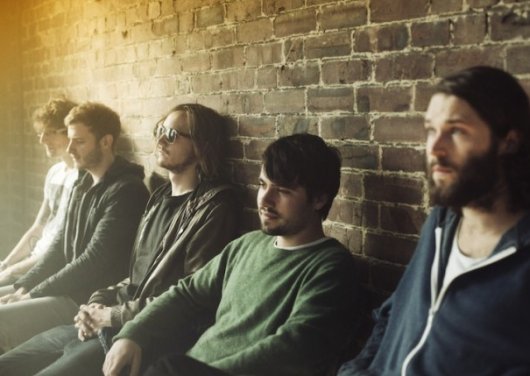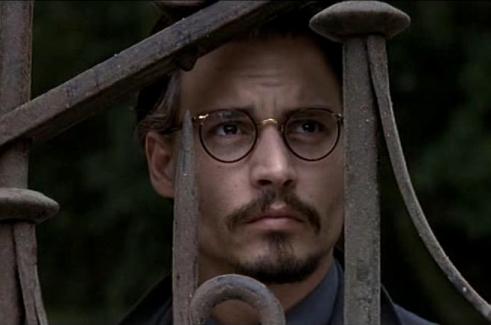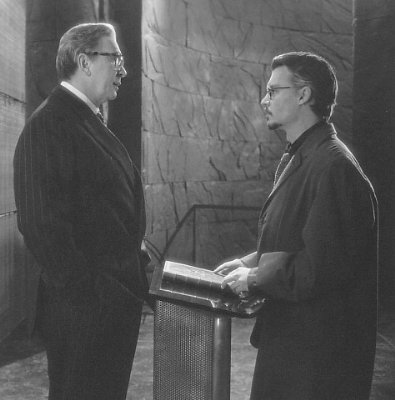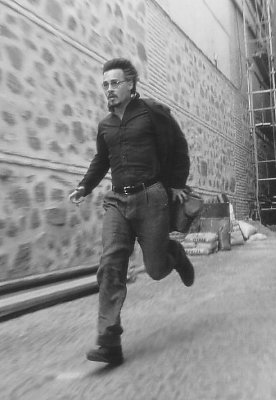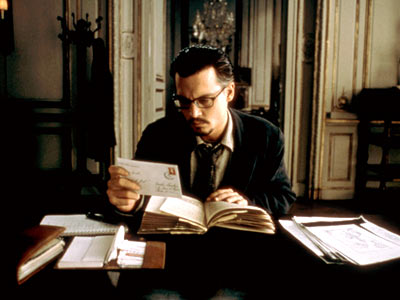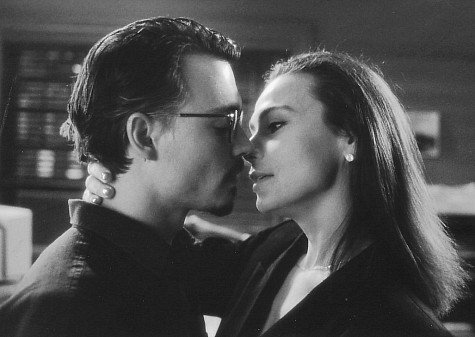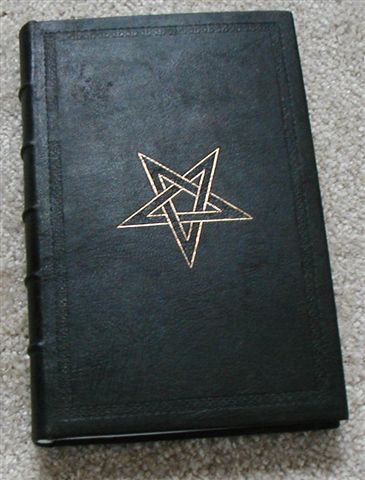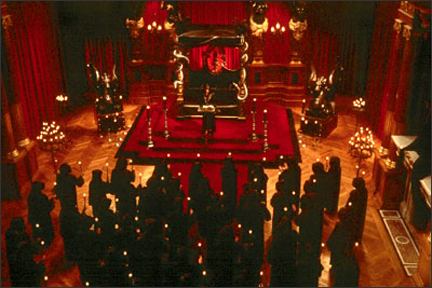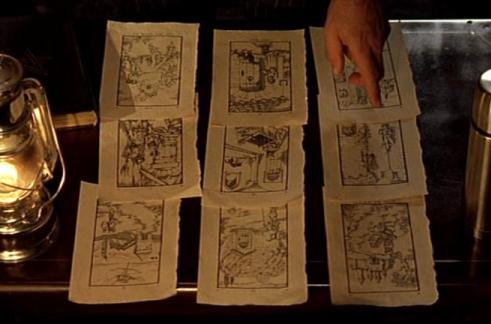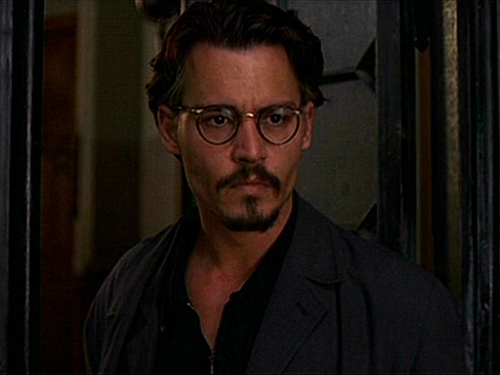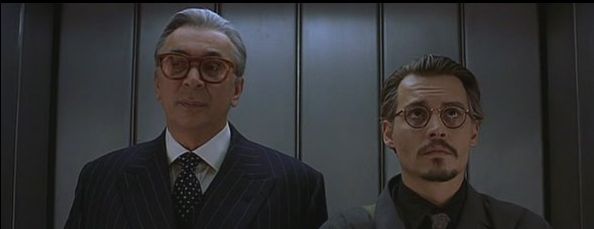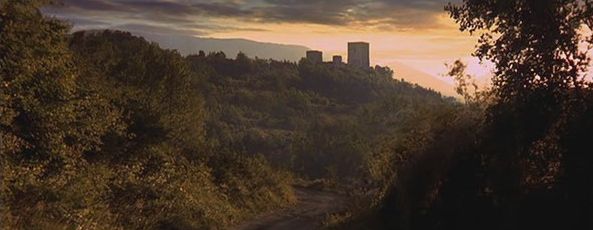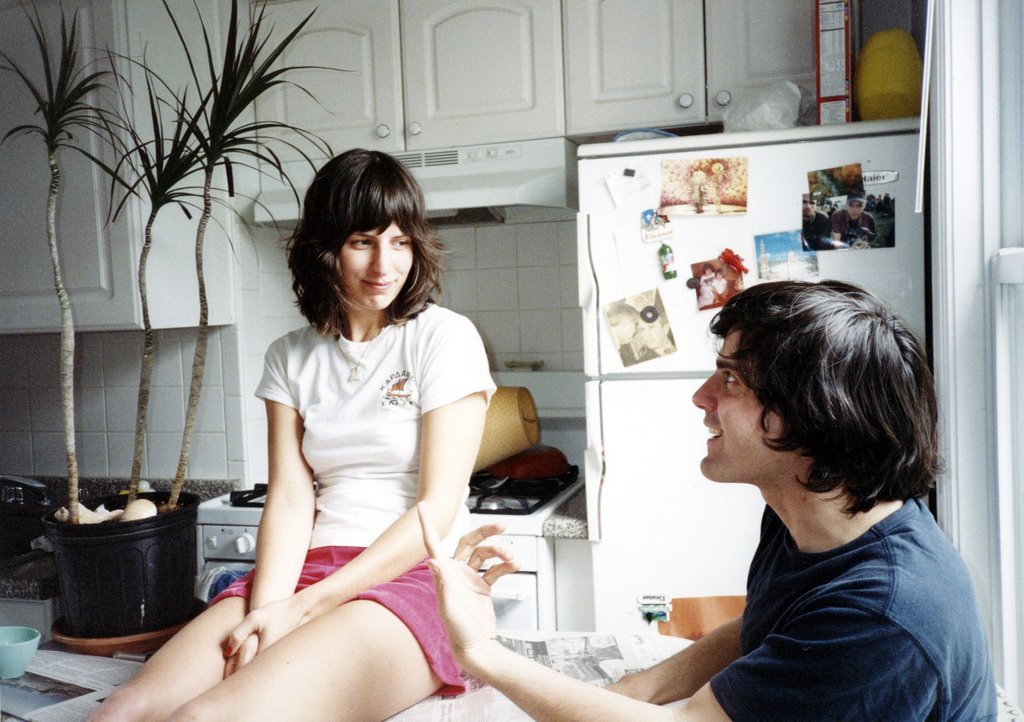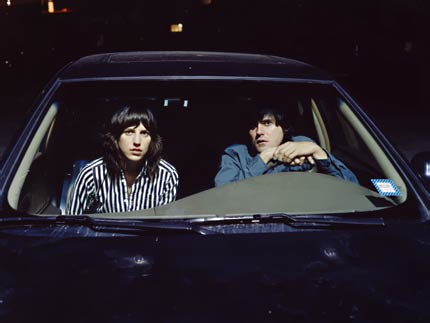 FILM
FILM In Which Johnny Depp And Amber Heard Look Through The Glass
 Tuesday, May 31, 2016 at 9:52AM
Tuesday, May 31, 2016 at 9:52AM 
Wonderland Diary
by ALEX CARNEVALE
Alice Through the Looking Glass
dir. James Bobin
113 minutes
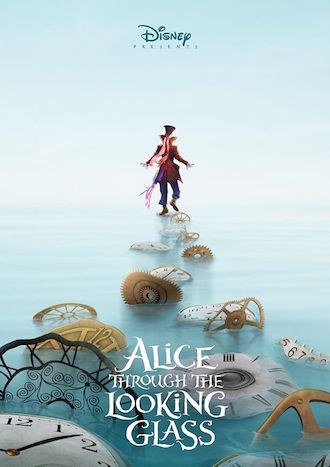 Alice Kingsleigh (Mia Wasikowska) is a ship's captain for an international conglomerate. It is unclear what exactly she has done to earn such a title, but she is clearly good at what she does. She returns to the firm's partners with pressing news about possible new trade routes. They tell her actually this is her last voyage and women should stay at home where they belong.
Alice Kingsleigh (Mia Wasikowska) is a ship's captain for an international conglomerate. It is unclear what exactly she has done to earn such a title, but she is clearly good at what she does. She returns to the firm's partners with pressing news about possible new trade routes. They tell her actually this is her last voyage and women should stay at home where they belong.
Dispirited, Alice strolls into a mirror and reverts to her childhood self, as some of us are wont to do. She finds Johnny Depp wearing some appalling makeup. Depp is in the midst of a psychiatric episode, but he thinks everyone else is the crazy one. Director James Bobin and producer Tim Burton probably should have seen this coming from their friend. Dressing an abuser up in disturbed facepaint and making him appear like a lonely old crank fits basically with what we know of Depp's recent behavior.
When Depp left his partner of fourteen years, Vanessa Paradis, and later asked her to explain that he did not actually strike a woman she knows nothing about, Amber Heard, he did not lock himself up in a house like the Mad Hatter. He probably did wear makeup to look younger, for although Depp made an incredible amount of money from Walt Disney Pictures, he no longer possesses the youthful vibrancy which propelled his understated acting style in the early days.

At least with the Mad Hatter in 2010's Alice in Wonderland, there was a joie de vivre that obscured whatever disturbed sadness was at the heart of this father of two. In Alice Through the Looking Glass it could not be more clear we are viewing a deeply unhappy person in the guise of a children's comedian. It is not unlike watching the last days of Pee-Wee Herman's Playhouse or the time Mr. Rogers made that little girl cry.
The theme of Alice Through the Looking Glass is the oldest sexism imaginable: it is that women have no particular goals or person without men to serve in some fashion. In order to make the Mad Hatter happy again, Alice plans to journey into the past to prevent the events that led him to become sad. To accomplish that, she contacts Time (Sacha Baron Cohen), in a career move even more perplexing than The Brothers Grimsby.
At one point or another Amber Heard posted these really sad videos of her in bed. She is nude and in bed, but there is nothing really close to sexy about them. The viewer quickly realizes they are the desperate work of a profoundly lonely and unhappy person. Why she married such an older man in the first place would be unclear if Depp's personality were not just as manic as her own. Such individuals can never find a concord within each other, and are all extremes.
The couple took their Yorkshire terriers Pistol and Boo to Australia. It never seemed like such a big deal at the time, although they might easily have afforded a dogsitter. What was most reprehensible was the tongue-in-cheek apology video they were forced to record by the Australian government, where they both revealed themselves as half-chastened, half-impudent children. "If everybody minded their own business,' the Duchess said in a hoarse growl, "the world would go round a deal faster than it does."
Alice Through the Looking Glass posits that there is some utility in returning to what we were as children. This operates in a few ways: Alice is able to surmount any fear, apprehension or anxiety in decision-making. Alice has many friends who refuse to judge her and she doesn't judge them, either. Finally, the vocabulary the now-adult Alice uses in Underland is completely altered; by not having to use adult words she defuses the basic power of rhetoric. In Underland a regressive emotionality always triumphs.
After Alice Through the Looking Glass dispenses with its timely version of pretend feminism, it becomes essentially a time-travel film. In this confused movie's best scene, the Mad Hatter meets Alice for the first time when she might be meeting him for the last time. Sadly, neither has much to say to each other, since their relationship is more about the anxious enjoyment we exchange with people who we admire rather than a genuine connection.
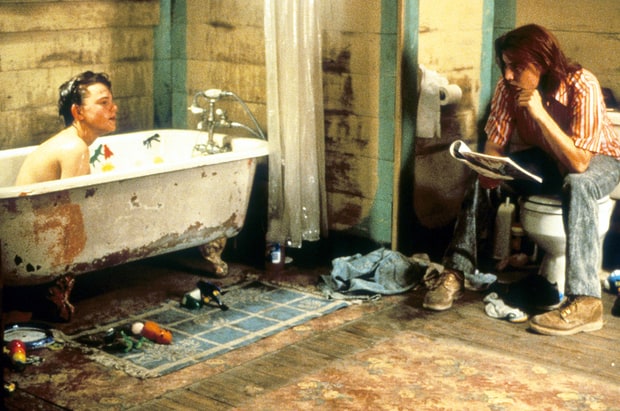
Was this what brought Heard and Depp together in the first place? After the judge's preliminary hearing on the divorce proceedings, some awful photographer took a picture of Amber weeping in her car. Whatever form it took, Depp's abuse of her is an terrible, disgusting thing, and he seems to know it because he immediately made all his friends vouch for what a kind, gentle soul could throw a phone at another human being's head.
I was actually surprised to see Amber so affected by the proceedings. I have witnessed that when people are angry at each other in relationships it can turn to hate, disgust and disrespect almost instantly, but I find it so difficult to forget or abandon feelings of love, or even respect. Depp's decision to drag his children into the process — kids who naturally loathed their mother's replacement and heard Depp's now-deceased mother denigrate her on many occasions — was an interesting choice. Depp's only concern now is the impact this publicity will have on his career of marketing literature from disturbed old men not entirely dissimilar to himself as entertainment for young girls.
It makes sense that the infantile people who produced Alice Through the Looking Glass would see no real difference between childhood and adulthood. For that reason Alice's journey comes across as incredibly cynical, and her deliberate abandonment of the real world and real struggles for an alternate, fantasy universe quite cowardly. The children who wandered into Narnia did so by accident, and they stayed there out of love and necessity. Alice escapes to Underland when she doesn't get her way, and she stays there because it feels good.
This essential hedonism was possibly all that Johnny Depp and Amber Heard shared. In pictures the two genuinely look alike despite the difference in their age. Even the tone and structure of their bodies, from facial features to bone structure mirrors each other. Could that have been their biggest difficulty? We do not want exactly what we already have – or maybe we do, but not for so long.
Alex Carnevale is the editor of This Recording.

"Faint of Heart" - Tegan & Sara (mp3)
